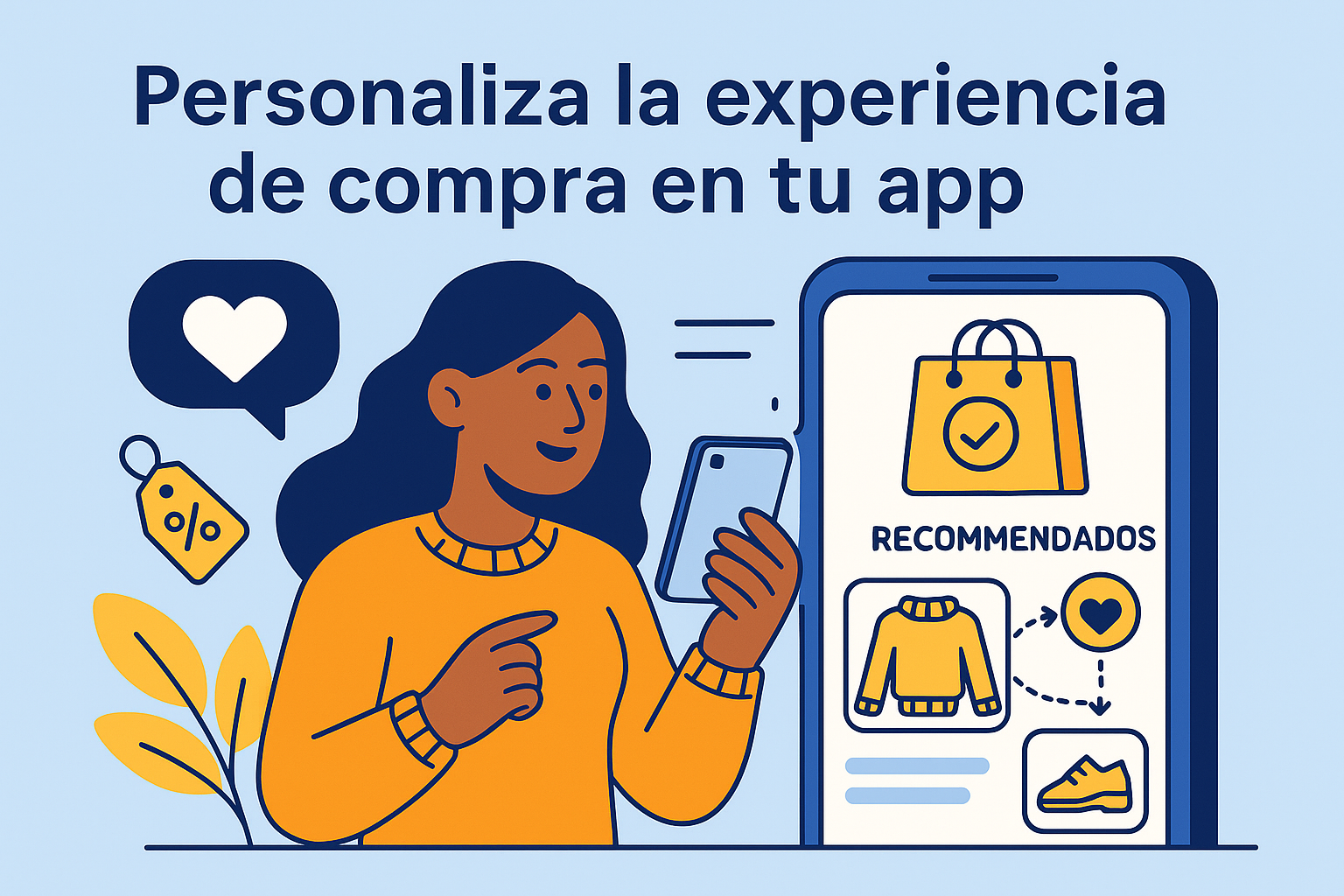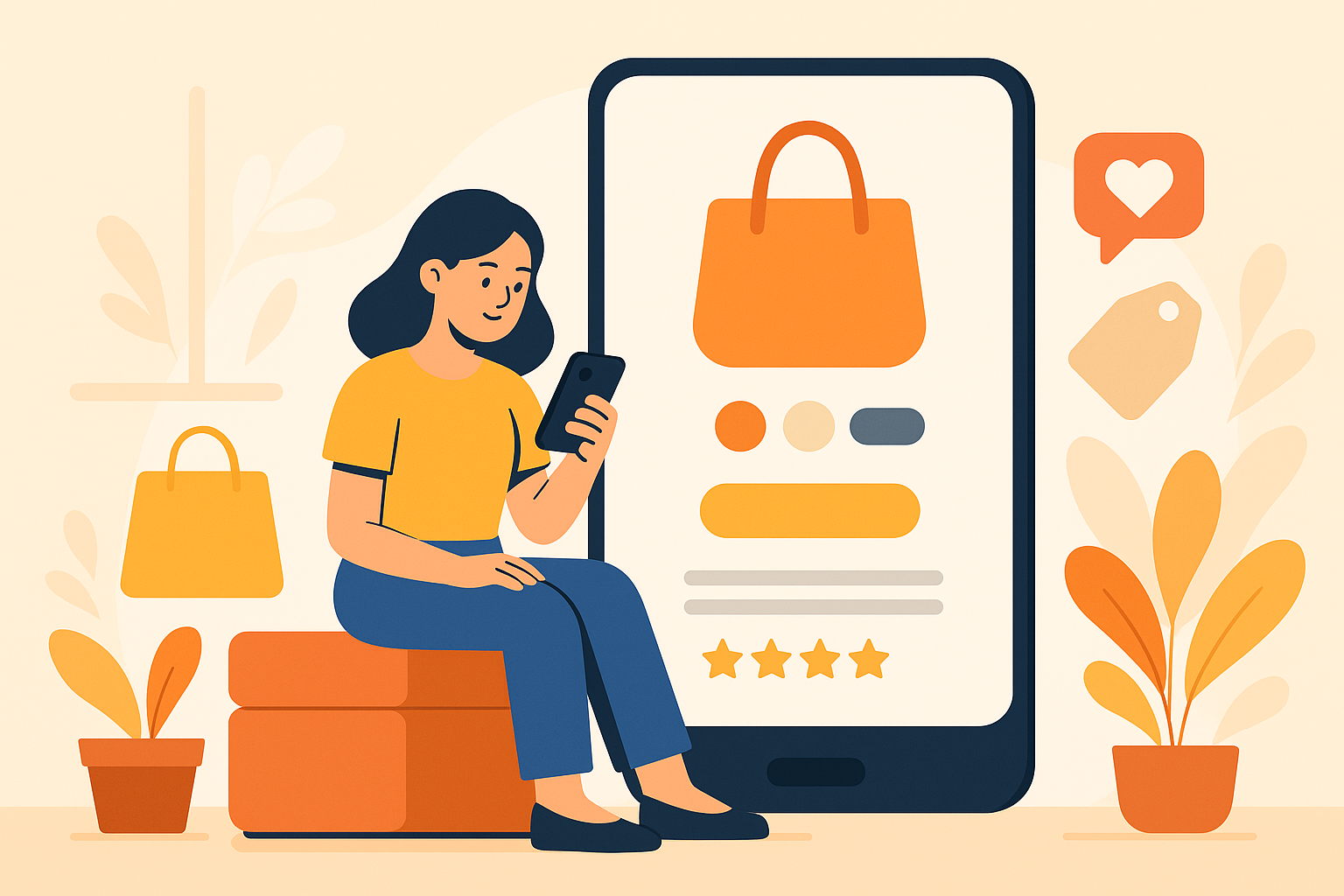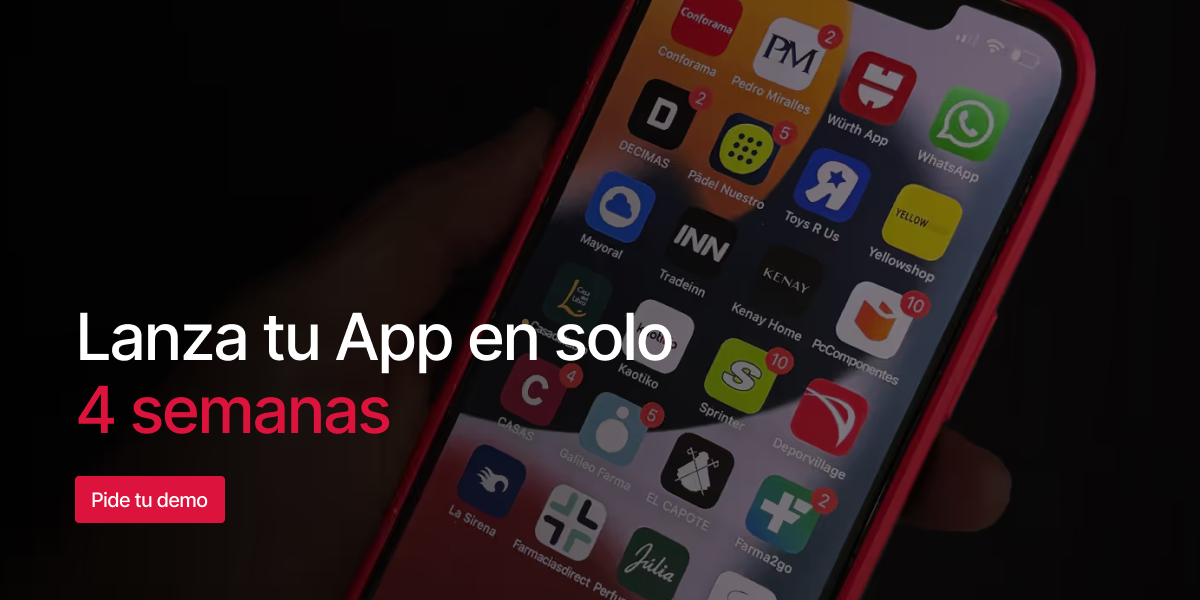
Personalizing the app experience has become one of the most effective strategies to increase conversion and customer loyalty. In a context where 80% of users expect brands to understand their needs and preferences, offering an individualized experience is no longer an option, it is an obligation.
According to IAB Spain (2023), 74% of users in Spain make recurring purchases in apps that offer personalized experiences. This shows that tailoring content, recommendations and promotions to each customer is key to differentiate and sell more.
Personalization doesn't just mean calling the user by name. It means understanding their behavior, interests and context to deliver exactly what they need at the right time. A personalized ecommerce app must be able to adapt its content, products and messages based on the customer's profile.
The most common elements in the customization of an app are:
An app that understands the user converts more. According to data from Epsilon (2023), brands that apply advanced personalization achieve 20% more sales per session than those that do not.
Personalization builds trust. When the user feels that the app "understands" them, they are more likely to return and make new purchases. This improves key metrics such as Customer Lifetime Value (CLTV).
Relevance avoids frustration. Showing only what the user finds useful or interesting reduces the abandonment rate by up to 25%, according to Data.ai (2023).
Intelligent segmentation allows you to adjust campaigns, promotions or push mailings based on real data. This reduces ad spend and maximizes return on investment (ROI).

The first step is to understand who your customer is. Analyze their browsing history, purchases, frequency of use and location. The more quality data you have, the more accurate the personalization will be.
Group your users according to their interests or buying patterns. For example:
Use the collected data to display personalized products or categories. Intelligent recommendations increase the likelihood of purchase and improve the user experience.
Send relevant messages and at the right time. For example:
Continuously analyze the results of your personalized campaigns: push openings, conversions, session time and order value. Constant optimization is the key to success.
Xti, one of the most recognized footwear brands in Spain, decided to go for personalization to increase the conversion of its ecommerce app. With the help of Reskyt, they integrated a system of recommendations and notifications adapted to the behavior of each user.
Xti's approach demonstrates that personalization in ecommerce apps not only improves the user experience, but directly impacts business metrics.
You may also be interested in: 5 signs that it is time to revamp your ecommerce app
According to Salesforce's annual study (2023), 73% of customers expect personalized experiences, while 86% say personalization directly influences their purchase decision. In addition, brands that personalize their communications achieve 50% more loyalty than those that do not.
Start by analyzing your users' data: purchases, visits and behavior. From there, segment and adapt content, banners and product recommendations according to those patterns.
With platforms like Reskyt you can easily integrate AI-based personalization systems, automate campaigns and manage everything from a visual dashboard.
Review key metrics such as conversion, user retention, average ticket and click-through rate on push notifications. Sustained growth in these figures is a sign of success.
Always offer transparency and configuration options. Complies with GDPR and uses data only to improve the experience, not to overcommunicate.
Personalize recommended products, banners, promotions and messages. The more relevant the content, the higher the interaction and conversion.
Advanced personalization in ecommerce apps is the most direct path to a unique, profitable and long-lasting experience. It's not just about selling more, it's about building strong relationships with your customers.
The Xti case demonstrates that, with the right technology and a well-planned strategy, personalization can transform an app into a brand's most powerful sales channel.
Do you want to offer unique experiences from your app? Request a personalized demo and discover how Reskyt can help you connect with each customer in a smart and effective way.
